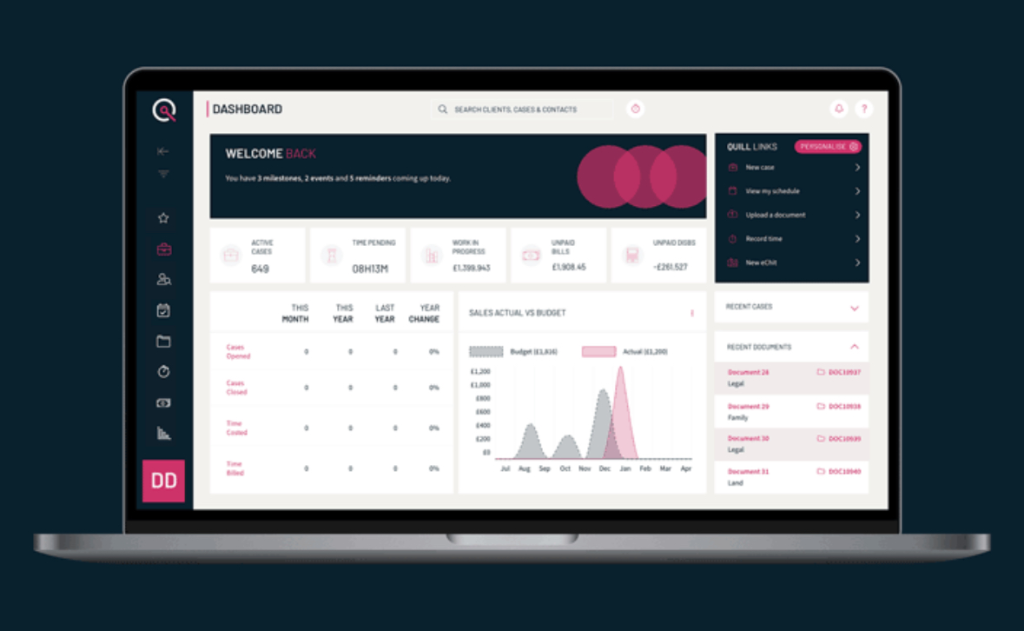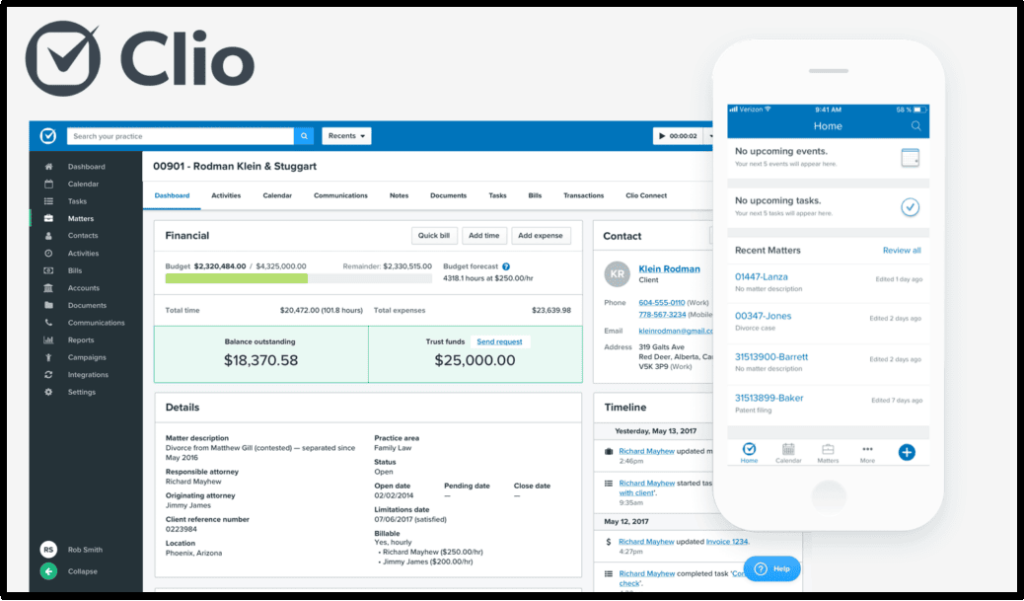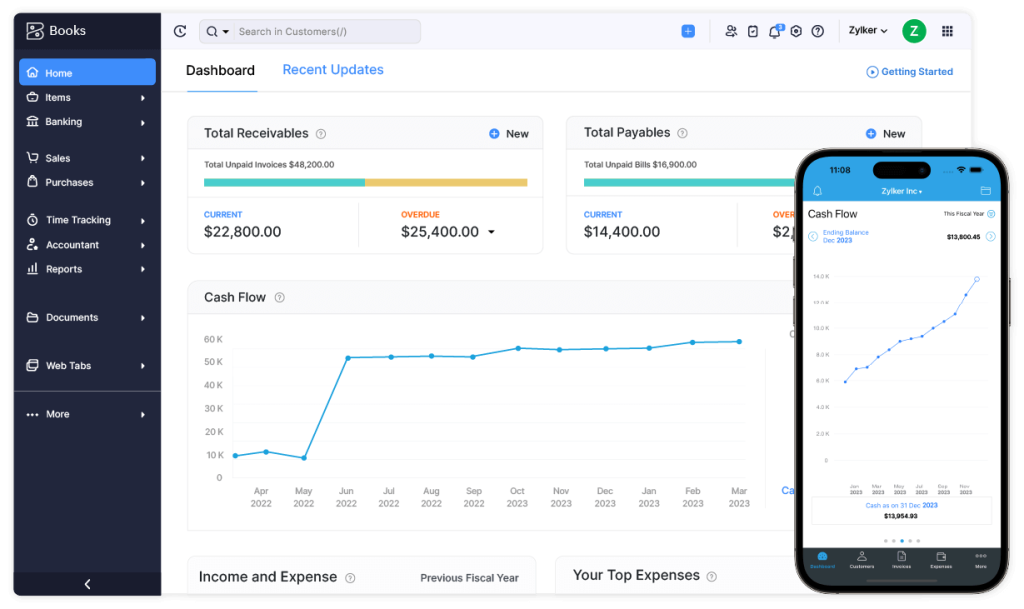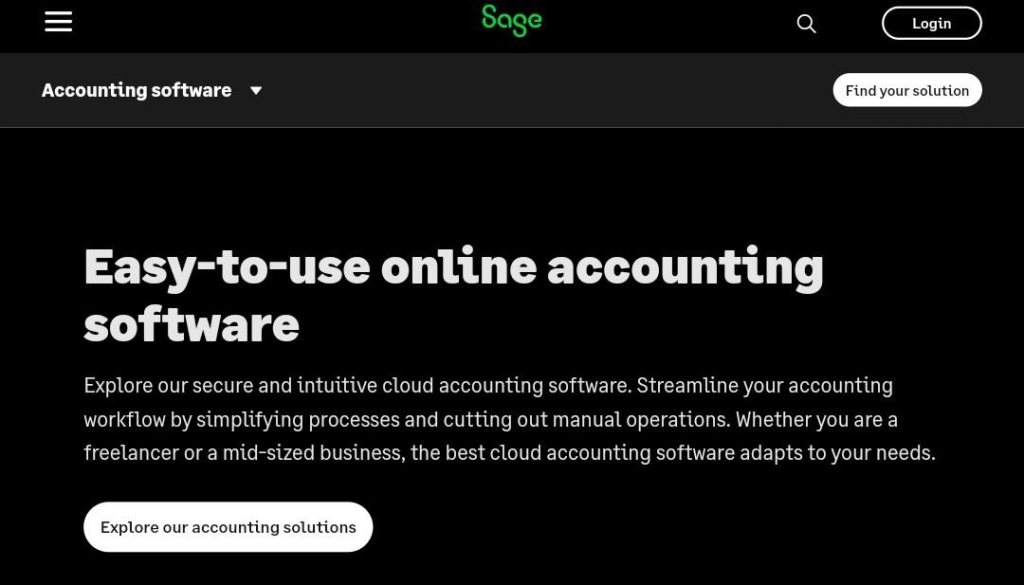Managing a law firm requires balancing many aspects, such as accounting and client management. The last thing you want is to get buried down with accounting duties when you should be concentrating on offering excellent legal services.
As law firms navigate an increasingly complex financial landscape, choosing the right accounting software is more critical than ever. The best solutions offer accounting and robust features that streamline billing, manage trust accounts, ensure compliance, and provide insightful financial reporting.
This blog will look at some of the best law firm accounting software options for 2024 and 2025.
Table of Content
Key takeaways
- Law firms need specialised accounting software to manage intricate financial records and ensure compliance with regulatory and ethical standards.
- Using accounting software offers increased accuracy, enhanced reporting capabilities, integration with other systems, time tracking, and improved security.
- A range of accounting software are available, so read customer reviews and seek advice from reliable sources before investing in one.
Why do law firms need accounting software?
Law firms typically have more intricate accounting requirements than other organisations. When it comes to maintaining financial records, there are typically many moving components, such as client money, maintaining escrow accounts, early fee deposits and client retainer payments. Law firm accounting software makes managing your legal company’s accounting easier and guarantees that you follow regulatory and ethical standards.
Accounting software for legal firms may incorporate more specific functionalities such as tracking time, case reporting, and practice management.

Benefits of using accounting software for lawyers
There are several benefits of using accounting software for legal firms rather than relying on traditional, manually intensive methods:
- Accuracy and efficiency
These applications speed up financial record keeping and decrease errors. They save time by automatically calculating fees, taxes, and expenses and produce precise bills.
- Reporting and analysis
They provide thorough financial reports to help in strategic decision-making. This assists in managing cash flow, analysing profitability, and locating revenue streams.
- Integration with other systems
Most of these applications can interface with payment processors, CRM programs for legal practices, case management systems, and other programs, establishing a productive environment that maximises growth.
- Time tracking
Accurately tracking the time spent on client duties can be achieved by your law company with the help of legal accounting software. Using the data, company executives can identify time-wasting and ineffective practices to enhance overall performance. Furthermore, the organisation can avoid accounting and bookkeeping issues associated with overcharging or undercharging clients.
- Enhanced security
Data security is a major concern for law firms because they handle sensitive and personal client information. Accounting software includes extensive security features to protect data from illegal access, breaches, and other cyber threats. Cloud Accounting software providers routinely upgrade their security protocols to stay updated with the latest trends, providing law firms confidence that their financial information is secure.
Best Law Firm accounting software in 2024 and 2025
1. FreshBooks

Source: FreshBooks
FreshBooks is a cloud-based accounting software for law firms and legal professionals. It is designed to ease financial duties and track invoices, cost monitoring, and time management for legal companies who want to manage their finances more efficiently and effectively.
Pros:
- User-friendly
- Four subscription levels
- Mobile-compatible
Cons:
- Reports of double billing from some users
- Instances of personal information being compromised in data breaches
2. Xero

Source: Xero
Xero is an accounting and bookkeeping application that has proved to be efficient over a long period. This straightforward platform allows legal businesses to effortlessly manage their finances. Xero includes payroll, bank connections, inventory management, invoicing, reporting, etc. It also provides users with online help around the clock.
Pros
- Includes a 30-day free trial
- Offers additional features like Hubdoc for capturing bills and receipts, as well as project and cost tracking
- Provides two-step authentication for data security
Cons:
- Users report frequent subscription price increases
3. Quill

Source: Quill
Quill is a flexible legal practice management tool made to make law firms’ operations run more smoothly. Its extensive capabilities, which include case management, time tracking, billing, and document management, are designed to meet the particular requirements of UK legal firms.
Pros:
- Very user-friendly with excellent and quick technical support.
- Quick and responsive; Legal integration allows secure, speedy client payments.
Cons:
- Fields are limited and not always relevant to the case
4. Clio

Source: Clio
Clio is one of the UK’s most widely used legal billing programs for legal firms, which helps them manage outstanding balances and late payments and keep track of billable hours. In terms of case management, you’ll be able to better organise contacts and cases for quicker and more effective billing.
Pros:
- Robust features for various needs
- Integrates well with popular productivity tools
- Suitable for firms of all sizes
Cons:
- Pricing may be steep for small firms
- Some features have a learning curve
5. QuickBooks

Source: QuickBooks
QuickBooks offers robust accounting software solutions for many industries. Its extensive reporting metrics enable you to track the expenses associated with any activity your company undertakes.
QuickBooks handles everything—from gas miles to costs to payroll. It is known for its comprehensive accounting solutions and extensive feature set.
Pros
- Widely used with bookkeepers and accountants
- Easy way to track finances
- Straightforward implementation
Cons
- Expensive subscription
- Limited support
- Learning curve for corrections can be frustrating
6. Zoho Books

Source: Zoho Books
Zoho Books includes all the functionality that small law firms require from accounting software, such as recurring invoicing, expenditure management, online payments, advanced reporting, timesheets, and more.
Zoho Books is a recommended solution for firms using Zoho CRM and Zoho Projects. Another advantage of Zoho Books software is that it provides more payment gateway alternatives than other accounting applications.
Pros:
- Free plan available
- Feature-rich accounting software
- Robust mobile app
Cons:
- Maximum of 10 users
- Must invest in higher-level plans for advanced features
7. Sage Accounting

Source: Sage Accounting
Sage Accounting works best for individual entrepreneurs and smaller legal practices. It does not, however, lack features or functionality. Rather, it’s a simple tool to reassure legal firms that their activities are consistently managed and monitored.
Pros
- Multiple users can easily use the software.
- Accountants have free access to the software.
- It includes features for cash flow forecasting.
Cons:
- As of 2024, perpetual licenses for the desktop version are no longer offered.
How to select the best accounting software for your law firm?
It’s important to select the best accounting software for your legal practice. To help you make the best choice, take into account the following factors:
Determine your company’s needs
Decide which specific accounting functions—such as payroll processing, inventory control, and invoicing—you would like the program to manage.
Consider scalability
As your company grows, consider its needs and select software that can grow with it. Scalability guarantees that the program won’t become redundant too soon.
Analyse integration capabilities
Find out if the accounting program can be integrated with other legal sites or CRM software, among other programs you currently use. Integration eliminates the need for human data entry and optimises data flow.
Evaluate user reviews
Seek feedback and reviews from other company owners who have used the accounting software that you are considering. Their experiences can offer insightful information.

Final thoughts
Choosing the right accounting software for your legal practice is critical, however you can always seek expert advice from accountants for law firms.
Considering your requirements and budget, you can identify a solution to simplify your financial procedures. Remember to evaluate the software’s functions, including invoicing, spending tracking, and financial reporting.
Remember to read customer reviews and seek advice from reliable sources. Making an educated choice will help you save time, increase accuracy, and obtain important information about your business’s financial health. Invest in the best accounting software available, and start managing your money immediately!











